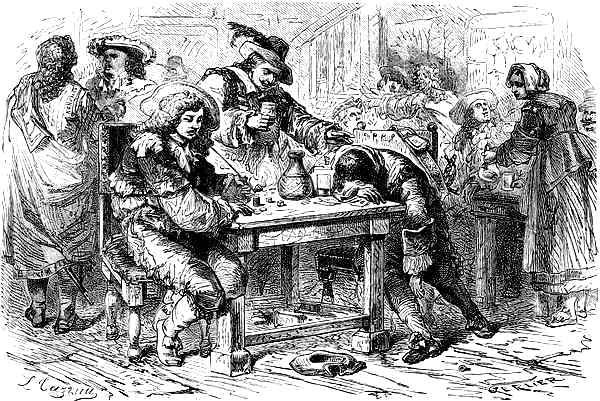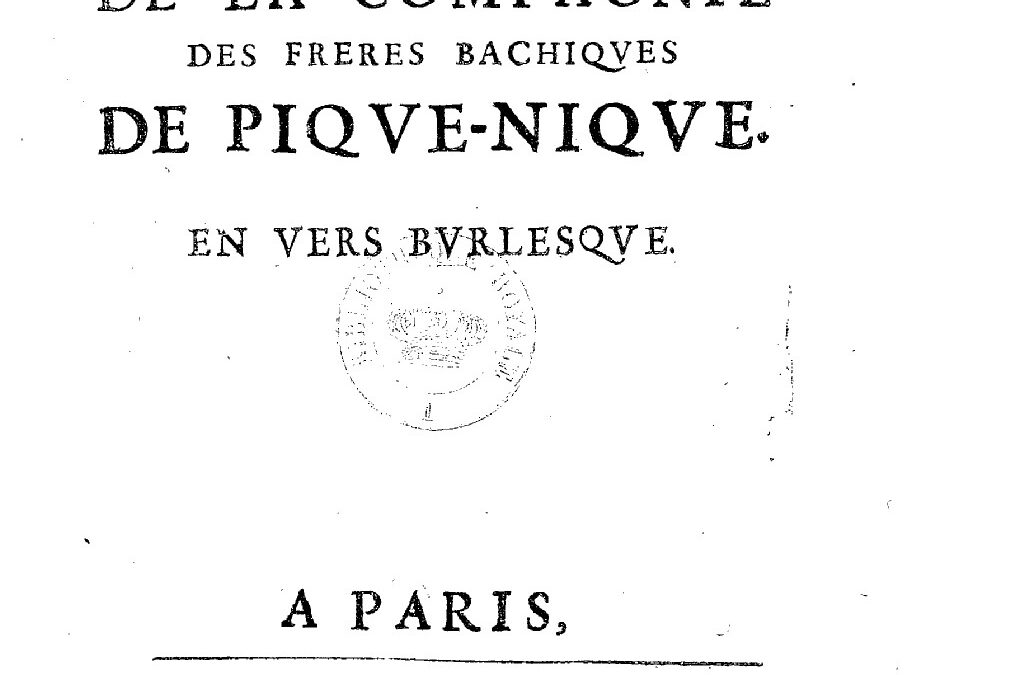During the War of the Fronde, hundreds of satires, vers burlesques, were published in Paris, read and forgotten. All parties in the war were satirized: Jules, Cardinal Mazarin (First Minister), the Queen Mother, under-age King Louis XIV, the Prince of Condé, members of parliament, guild members, and the bourgeoisie. According to Voltaire’s history, Le Siècle de Louis XIV, “The war ended and was renewed again at several different times,” It was so messy that “there was not a person who had not frequently changed sides.”
Among the combatants burlesqued in 1649 were Les Charmans effects des barricades, où l’amitié durable de la comapgnie des frères de Bacchique de Pique-Nique [The Charming Effects of Barricades or the Lasting Friendship of the Bacchic Brotherhood of Pique-Nnique According to the satirist, even while military engagements were still occurring in Paris, the satirist delights in suggesting that Pique-Nique and his cohorts have given up their swords and muskets and become gluttons, “perturbateurs de la joye,” deviants of pleasure. Their bravado and acts of heroism are confined to the table where they pleasurably grillades, ragouts, and cabirotades [stews] while swilling gallons of wine.

Henry Vizetelly. A History of Champagne. London: Vizetelly & Co., 1882 .
As often happens, words change meaning and context. Four decades after Pique-Nique and his Bacchic Company disappeared, their association with gluttony and heavy drinking was forgotten; only the notion of sharing dining costs remained viable and, according to the new fashion, became stylish among Parisians. Un repas á piquenique until Gilles Ménage included piquenique in his Dictionnaire du Etymologique de la Langue Françoise. Spelling it without a hyphen, Ménage defined piquenique as a sophisticated Parisian dining style for which each participant paid his reckoning, “Nous disons faire un repas á piquenique, pour dire faire un repas où chacun paye son écot.”
Ménage’s definition was durable, and it was the standard for more than sixty-eight years until 1762, when the Dictionnaire de L’Académie française, 4th Edition, superseded it. Ménage Despite Ménage’s fame as an etymologist, he received no credit, nor was there any mention of the Bacchic Brotherhood.
The author and Pique-Nique are unknown. It’s possible Pique-Nique was a freelancer in Cardinal Mazarin’s service. He might also have been in real life D’Atangnan, later the hero of Alexandre Dumas’s Les Trois Mousquetaires romances.

